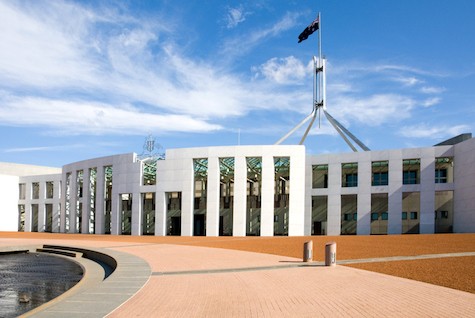
In a recently published submission addressed to Senator Jane Hume, a raft of professional accounting, tax, actuarial and superannuation bodies, representing both large APRA funds and SMSFs, have outlined their overarching concerns with the recent introduction of the non-arm’s length income rules (NALI).
The submission, which was submitted last year following the release of the ATO’s final Law Companion 2012/2, warns the NALI rules and the ATO’s interpretation of these rules will have “far reaching and significant harmful consequences”.
The joint bodies noted that in the final ruling, even the Commissioner is alive to concerns that “a finding that general fund expenses are non-arm’s length is likely to have a very significant tax impact on the complying superannuation fund, even where the relevant expenses are immaterial”.
“While the joint bodies have a number of issues with the reach of these provisions, our overarching concern is that the ATO’s interpretation of the law means that, rather than merely addressing the mischief at which the government policy was directed, the rules could result in unwarranted significant and long-term detriment to fund members and could operate in conflict with a range of trustee obligations such as the best financial interests duty (BFID) rule in the Superannuation Industry (Supervision) Act 1993 (Cth),” the submission explained.
The submission gave an example of unallocated expenses that are incurred on a non-arm’s length basis, which will generally trigger non-arm’s length income (NALI) tax of 45 per cent on all of the income of the superannuation fund for that particular year.
“In an SMSF context, a non-allocated expense of $1,000 that is not charged for, or is undercharged, in a financial year the SMSF derives $100,000 in assessable income, will result in $45,000 of tax for the SMSF. That is, by not paying $1,000, the SMSF incurs additional tax of up to $45,000. In the joint bodies’ view, such an outcome is both unintended and disproportionate,” the submission stated.
In a large APRA fund context, the submission warned that the application of the ATO’s interpretation of the rules at least conceptually could give rise to extremely large increases in funds’ tax liabilities.
“If a large APRA fund’s usual tax liability for contributions income and investment income combined was $1 billion in a particular tax year, the incurrence of a $1,000,000 general expense to a related entity of the fund — where it was subsequently determined that an arm’s length amount should have been $1,500,000 — could give rise to an increase in this tax liability from $1 billion (at the usual superannuation fund rate of 15 per cent) to $3 billion (at the NALI tax rate of 45 per cent),” the submission explained.
“Again, in the joint bodies’ collective view, such an outcome is disproportionate and significantly harmful to the retirement outcomes for members.”
While the ATO notes in LCR 2021/2 that it would not expect the rules to apply to the ordinary operations of large APRA funds, the joint bodies said the “mere existence of these potentially catastrophic consequences is likely to add significant complexity and costs to funds’ operations in seeking to avoid any possible risk that the rules could apply”.
“Ultimately these costs will be borne by the members of the funds. The NALI consequences are also contrary to the fund trustee’s BFID where trustees are broadly required to minimise expenses with a reverse onus on trustees to prove that each expense has been in beneficiaries’ best financial interest,” it said.
Request for legislative amendments
The joint bodies in the submission requested that the government make an announcement that they will review the NALI rules in section 295-550 of the Income Tax Assessment Act 1997 (Cth) and encourage the ATO to provide further administrative relief until this review and relevant amendments to the legislation are enacted (retrospectively to the original starting date of 1 July 2018).
These amendments to the rules, it said, should exclude arrangements where the other party or parties to the transaction with the fund do not include a fund member or an associated person of a fund member, and ensure that the potential for general expenses to taint all the income of the fund at the NALI tax rate ceases to apply.
The amendments should also ensure that the NALI rules operate in a manner that is more consistent with other anti-avoidance provisions, thus ensuring the application of the rule is proportionate to the problem to be addressed and providing the trustee with an opportunity to correct unintended errors.
In October last year, Senator Jane Hume said the government had “very much heard” the industry’s concerns about the need to fix the NALI rules, which potentially expose the entirety of a super fund’s income to a punitive tax rate due to a nominal or insignificant discount on a dealing.
“We know the concerns about the commissioner’s ruling, and I can assure you … [that] we are looking into your question,” Ms Hume said at the Tax Institute’s National Super Conference.
Miranda Brownlee
31 January 2022
smsfadviser.com
15th-February-2022 | 


